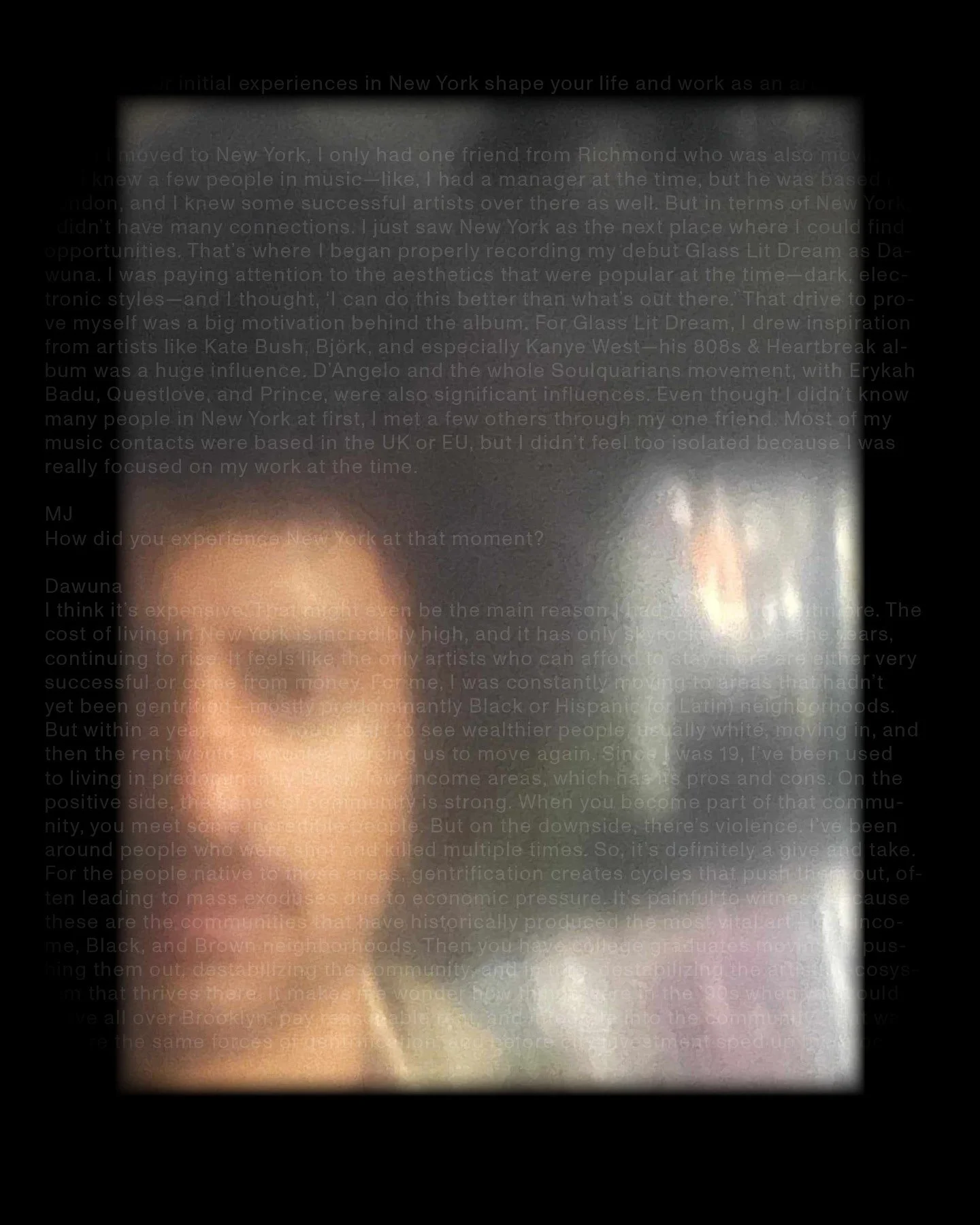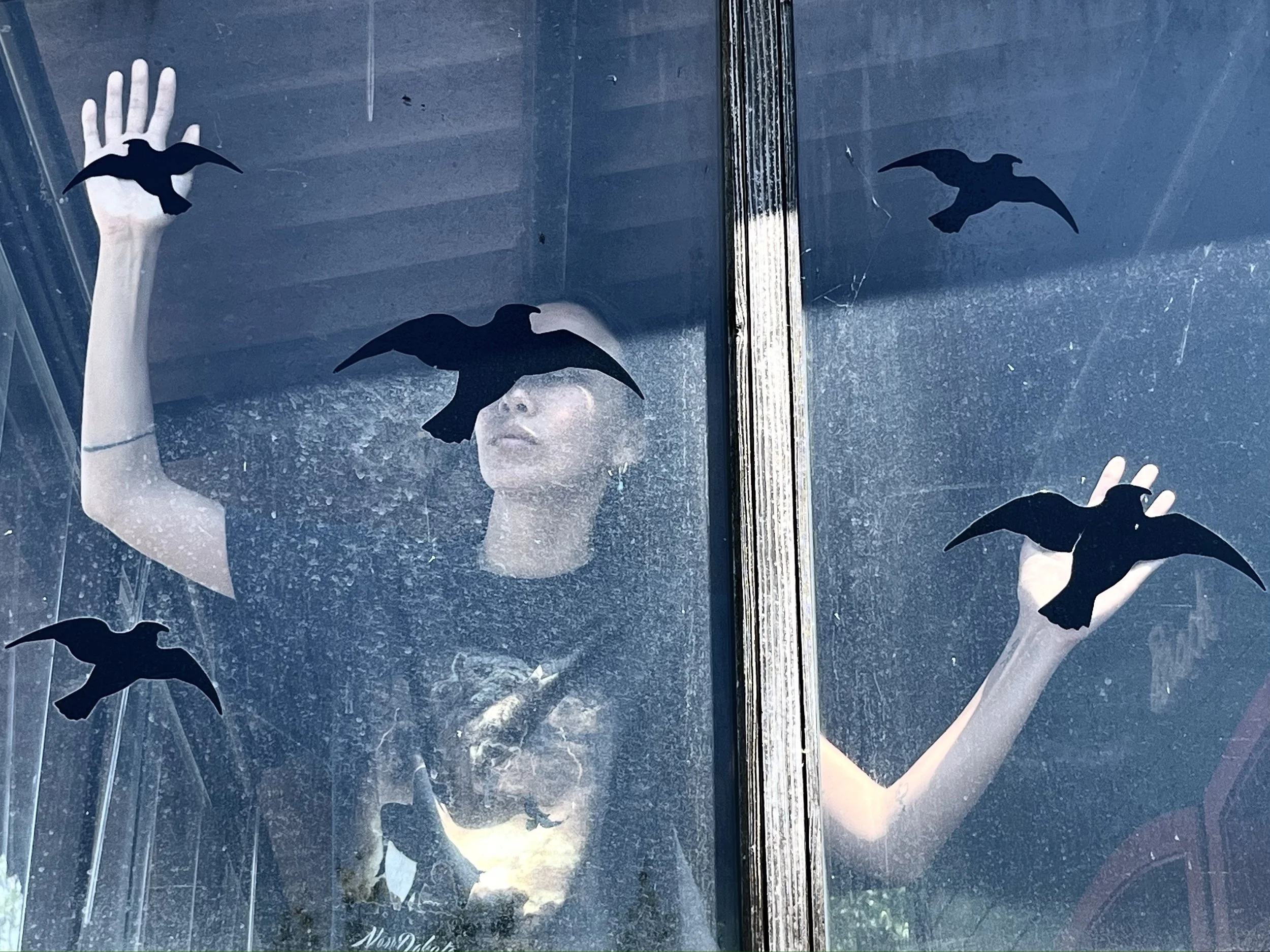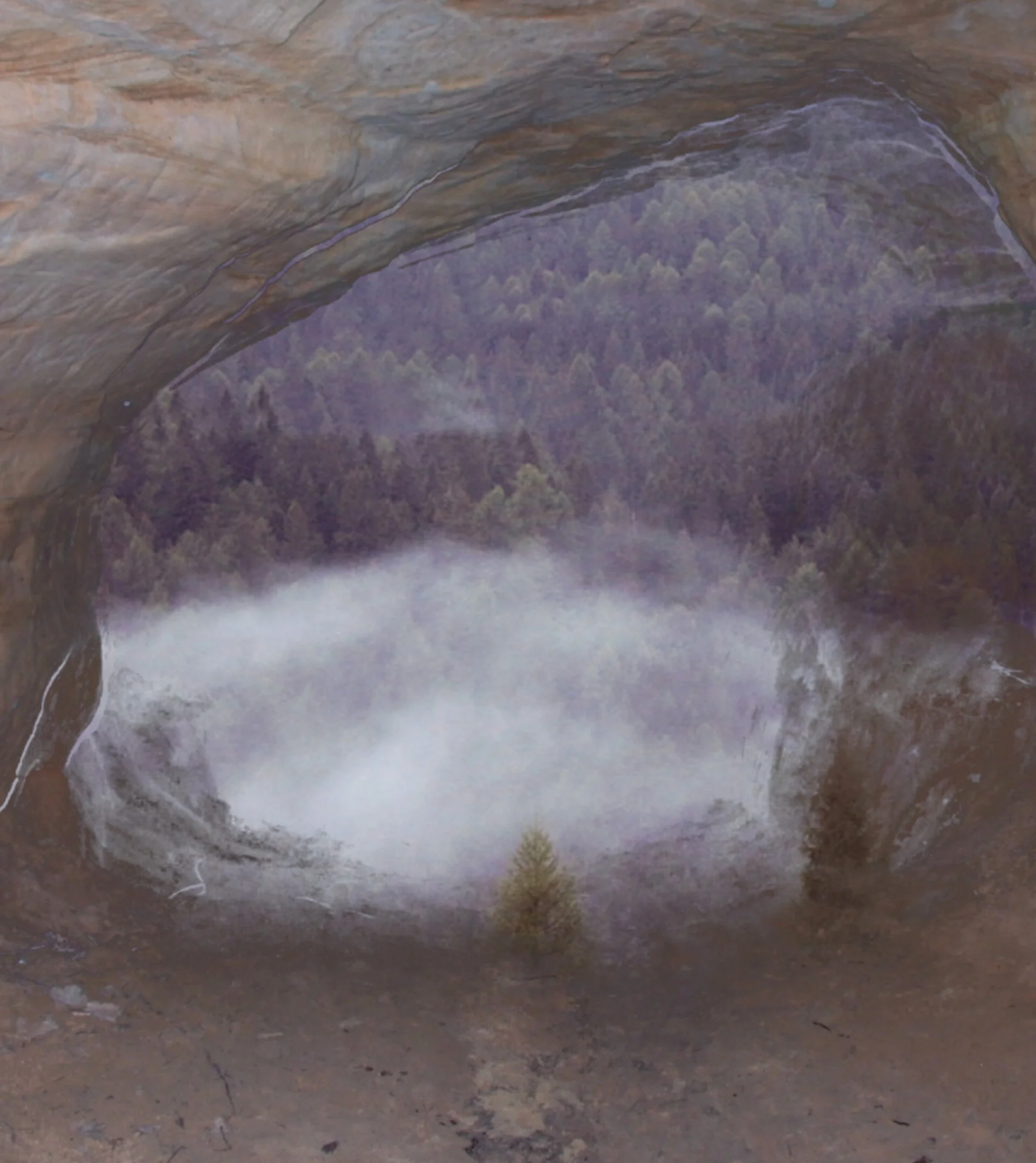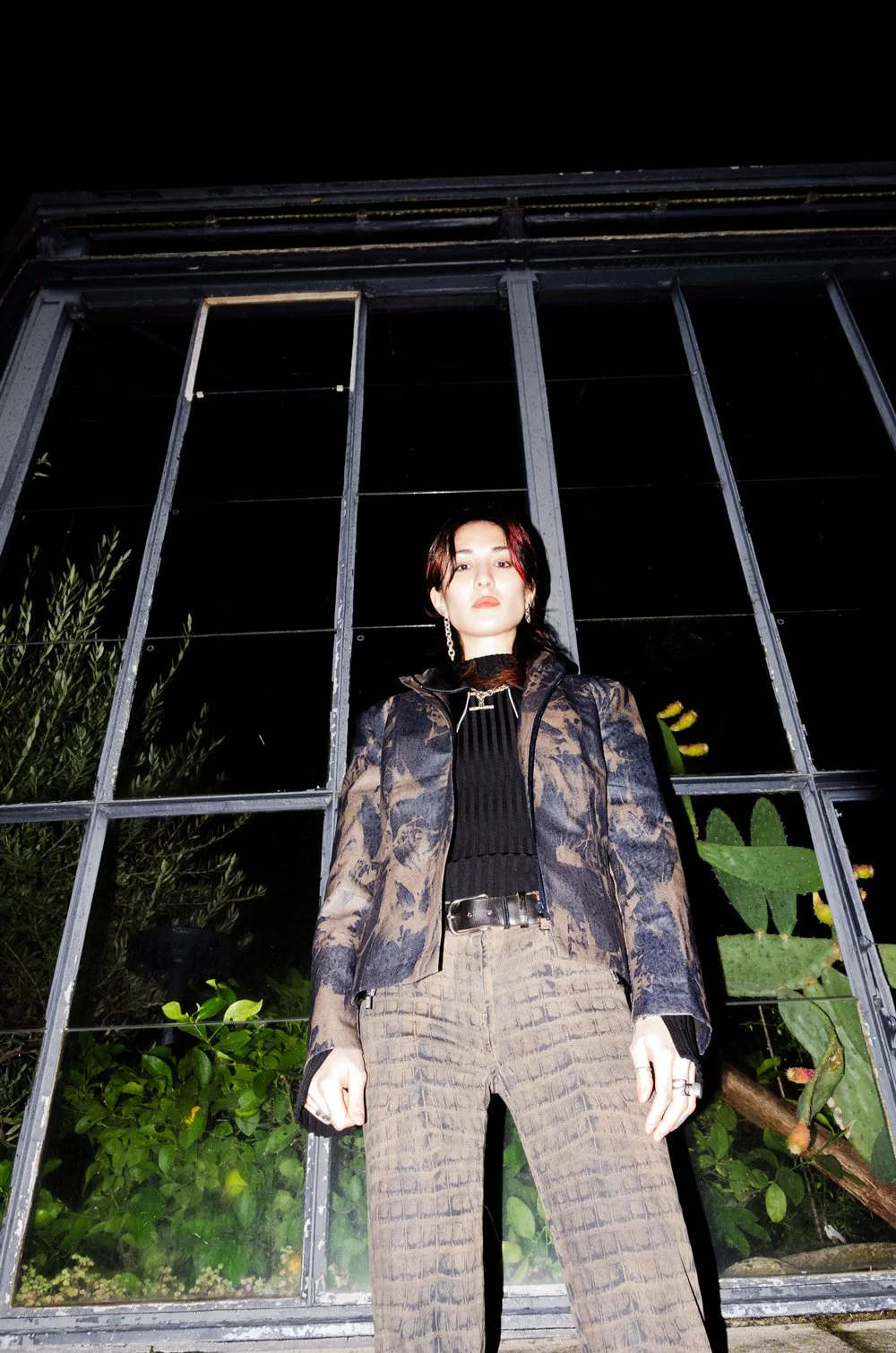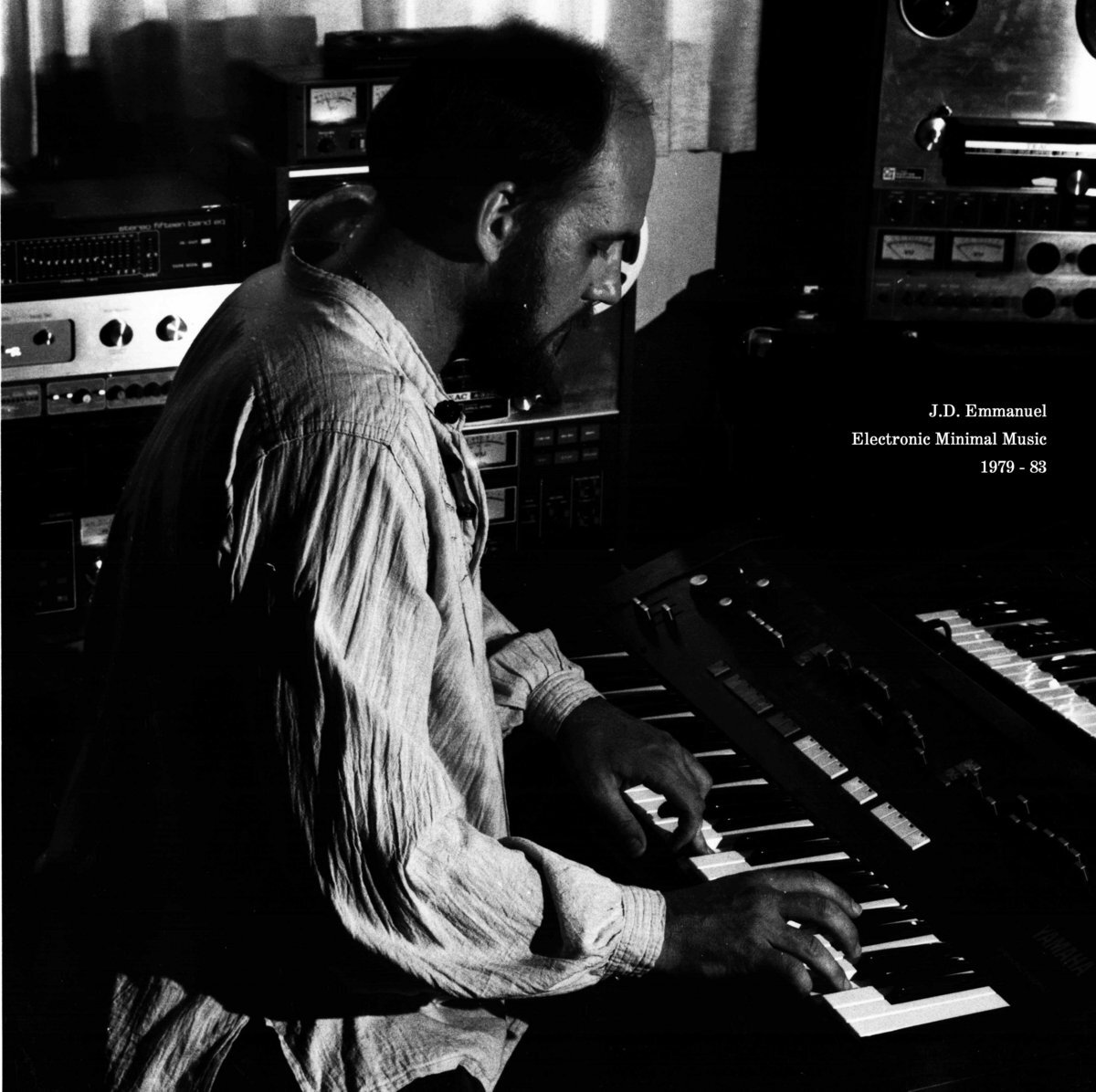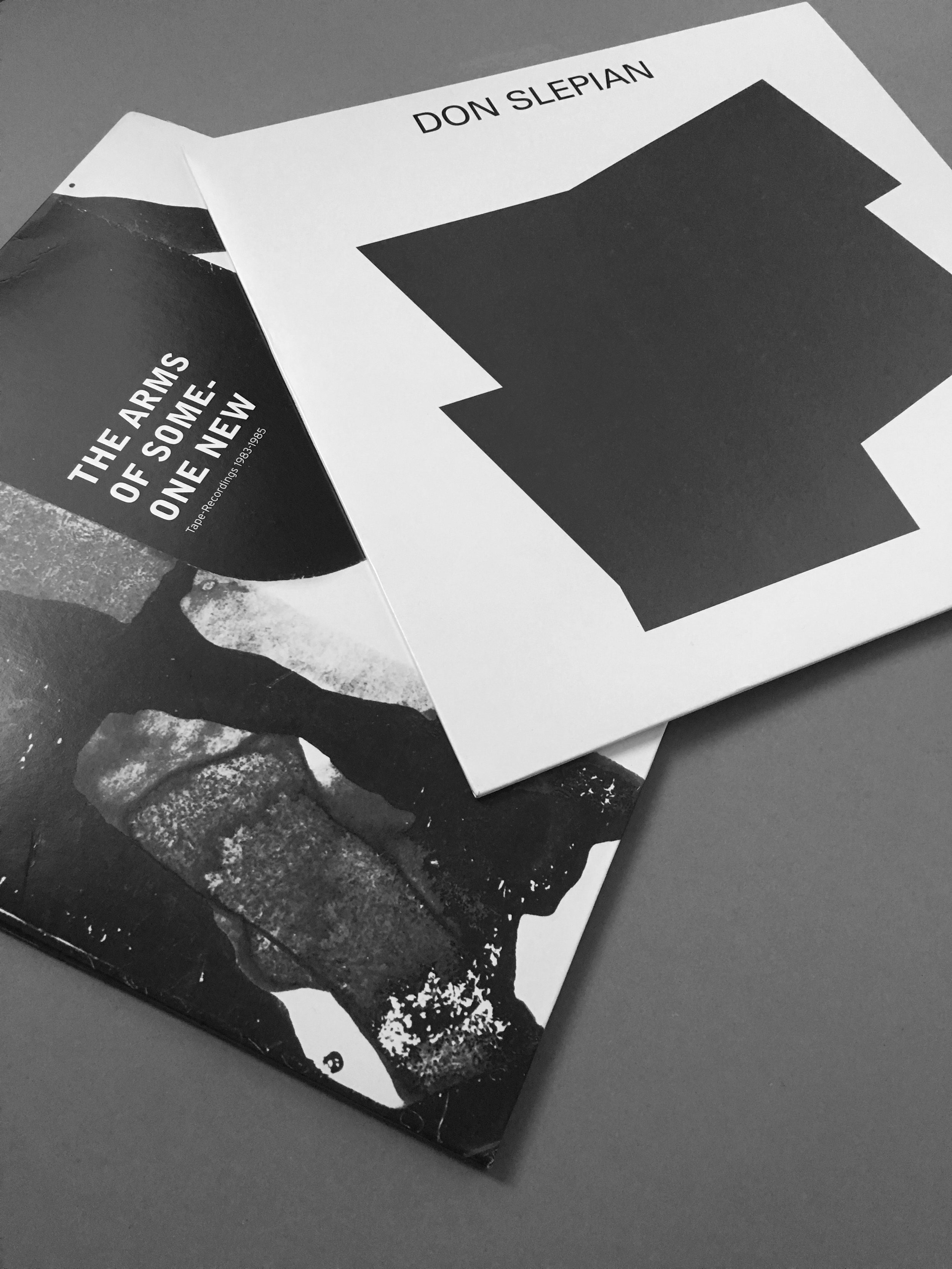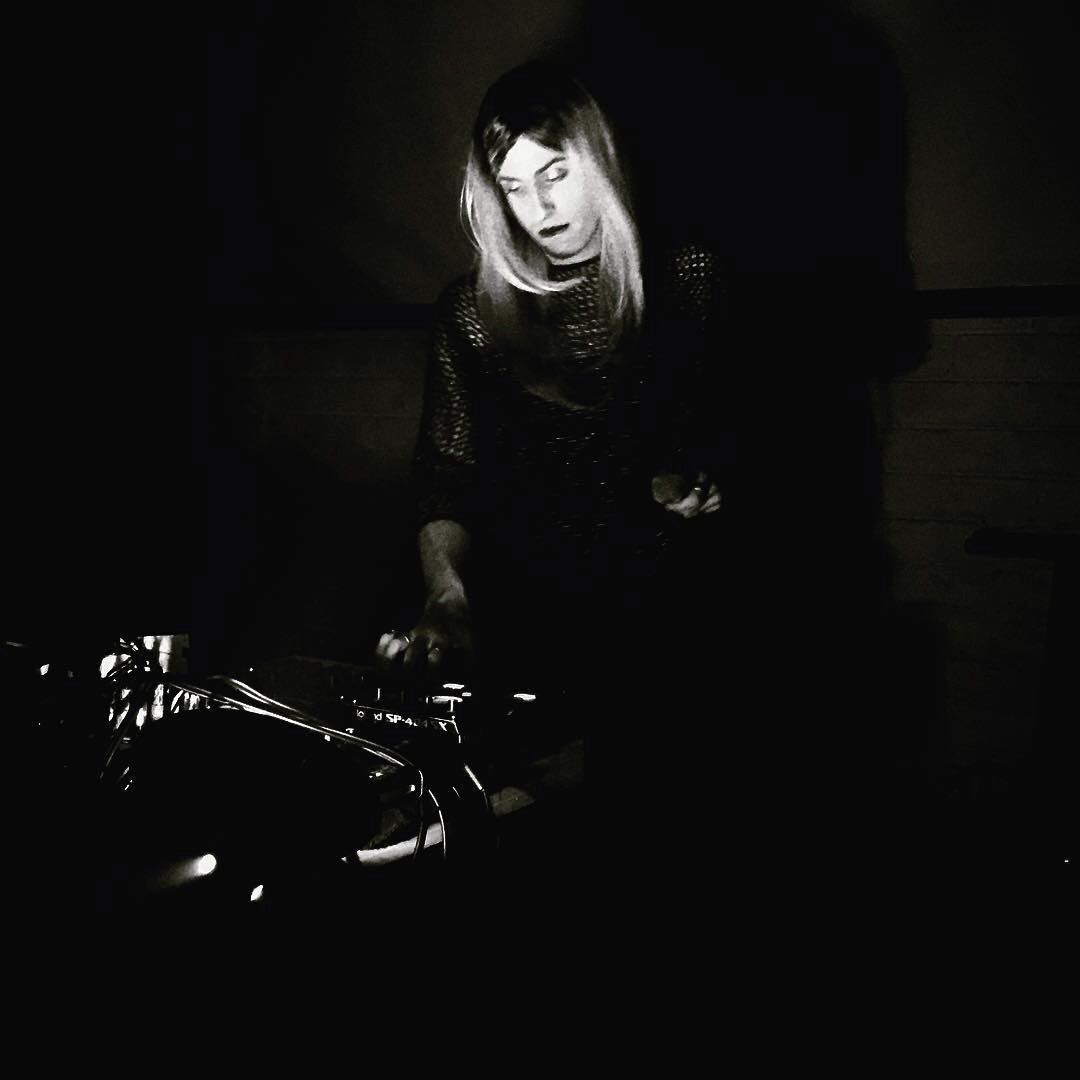
text: marc jauss
picture: beau devereaux
Working one’s way through the outsider label Golden Cloud Tapes is to sometimes find oneself in a seemingly endless corridor, sometimes in a cathedral of sound.
Italian filmmaker Dario Argento once said, “Horror is like a serpent; always shedding its skin, always changing. And it will always come back.” Golden Cloud Tapes, the label from Madison, Wisconsin, comes off as equally present and versatile. The imprint was launched in 2010 with Secret Parking Lot, the enigmatic debut from Samantha Glass. Behind the pseudonym is the skateboarder and self-confessed Rihanna fan Beau Devereaux, who on the one hand runs the label and on the other, as an artist, wears many skins: as Anvil Dome, Victor Portsmouth, Roan Linden, and even Samantha Glass, he produces mystical sound landscapes. Glass’ milestone albums Mysteries from the Palomino Skyliner and Surface Water Perception have even been released on the labels Not Not Fun Records and Sacred Phrases, respectively. Devereaux repeatedly brings the listener into a trance-like state—the conscious world loses focus and they suddenly find themselves in an endless corridor of beguiling echoes and distorted guitars. Should they suddenly regain awareness, they’ll soon be released from Devereaux’s voice, penetrating as if through a thick fog. This apocalyptic trip is just one of many positions found in the universe around Golden Cloud Tapes.
Take, for example, the 2014 album The Vitrine of Blindness from Robert Anthony alias Sleep Museum. For over ten years, this Brooklyn-born musician has produced dark and mostly rhythmic synthesizer noise that bore deep into listeners’ ear canals. Anthony sees his work as building musical cathedrals: filtered arpeggios, dusty pads, and raw bass lines dance like bats around one’s face. While wandering astray here, primed for adventure but in search of the exit, the listener nears the album’s end and finds the illuminating title: “We Are Here.” A ghostly voice wants to tell us that we’ve arrived.
It’s uncertain what skins Devereaux and Golden Cloud Tapes will slip into in the future. What is certain is that future releases will continue to surprise.
Blueprint 1:1 is an interview format developed by the Zurich online platform fromheretillnow. It explores on how urban change affects artists and musicians, exploring the challenges and complexities faced by creatives in cities undergoing new forms of transformation. Through a mix of online and real-time conversations, it provides insight into the evolving dynamics of urban life.
Premiering the performance ELEKTRA (Scream Through the Eyes of a Statue) in 2018, the artist James K marked the beginning of her residency at ISSUE, NYC. Deeply rooted in a conscious art practice that has honed her peculiar aesthetic to the fusion of visual and sonic elements, with ELEKTRA, James K explored the female voice considering it as an "X-ray to the bones of sound."
JUNCTIONS:SYMPOSIA took place on the afternoon and evening of January 21st 2023, at Brasseries Atlas in Brussels. In the form of a symposium, cultural workers from Zürich and Brussels presented, performed and displayed work in order to initiate conversation and establish first contact with each other.
Sabiwa is an experimental electronic composer and performer from Taiwan. She produces, records, and dissects sounds and videos from natural and synthetic sources, making them interact with complex textures and abstract patterns. Additionally, she also uses her processed voice as a guide in her soundscapes. As connecting elements, performances and DJ sets by Magari, Xafya, and Jauss will fill the dusty tunnel of Zurich’s iconic venue.
Orlando is an ongoing formalist archival project dedicated to exploring the capacity for consecutive sounds, transcripts, images, films, and texts to affect one another according to their literal and thematic proximites.
'Echo Shelves' was a special evening that featured soundscapes by Nina Emge and Heith, presented by fromheretillnow in collaboration with the artist Dominic Michel and Istituto Svizzero. 'Echo Shelves' gathered thoughts on the scenic quality of public inventories and used objects, sound, and places as carriers of stories that continually transformed and extended themselves. The event symbolized the gradual fading of the current exhibition, marking a transition into a 'dark mode' that marked the exhibition's conclusion.
With the invitation to the PARA/SITE O. SINENSIS event, which was curated by Lhaga Koondhor, fromheretillnow responded with a selection of moving images and music videos that were focused on noise and the complex relationship between host and parasite.
A glimpse behind the scenes reveals an authentic parallel world that stands in strong contrast to the perfectly staged show. The scene as a whole appears unfinished, chaotic, and somehow improvised. Ultimately, everything is aimed at a specific moment that fades away after a certain time and only exists in our thoughts or in recordings in the form of sound, videos or images.
During the "Charmlore – Keepsake Of History" event on April 19th at Theaterhaus Gessnerallee Zurich, we showcased music videos and audiovisual works themed around Terminal Architectures through our exhibition format E.N.C. The screening included works by BOD [包家巷], Chino Amobi, Hannah Rose Stewart, Mark Leckey, Rustan Söderling, and VISIO.
This is the kind of music I want to make with the "Wave Notation" series. because music is not only meant to be something which exists atone, What I am attempting to do, in an overall sense, can be called `sound design'. This includes the adjustment and regulation of sounds which are proper to an environment, along with the production and composition of the music within this series. Possibly, for a given environment, just one sound would be sufficient.
Just moments away from Johanna Odersky's album launch and the multifaceted exhibition set to grace Berlin's Projektraum Ashleys, I found myself immersed in conversation with the artist and musician at her studio nestled outside the bustling city. Together, we embarked on a journey exploring the nuances of spaces, emotions, and the transformative effects of sampling on her artistic practice.
FHTN 1123 is a grassroots project by Zurich-based music editor and Fromheretillnow curator Marc Jauss. Inspired by the tragic romance of “Sister Küngold and the Pale Knight,” an audio-collage of contemporary experimental music by selected musicians has been crafted.
Dreamcore.vol 1 captures the raw energy of an untamed underground music scene, that fiercely defies the tides imposed by the rapidly-evolving urban landscape. The compilation offers an atmospheric journey through obscure textures, distorted rhythms and vivid soundscapes and grasps subconscious aspects of collective experience.
There are many approaches to running a record label. Finding a niche and sticking with it is one, sprawling out into many different directions another. Yegorka’s mode of operation is the latter. The label is run by DJ and producer Tobias Lee Christensen aka Why Be and Dan DeNorch, who founded the now defunct party series and label Janus with Michael Ladner.
Imprisoned by an unreal site of frozen remains to a highly developed civilisation that seemed to have vanished entirely in view of these inhumane conditions we began a routine of expedition like walks and daily experimentations with musical equipment.
Based on the format of the live stream, 'fromheretillnow' offers insight into self-produced images and found footage, inviting viewers on a journey of new discoveries. Accompanied by musical pieces and exclusive tracks from individuals in our community, the stream provides a unique experience.
After infinite hours listening to decomposing moldy tapes that i found in a metal box during a hike on the mountains near Glarus, i compiled a series of limited edition mixtapes that Ill be releasing in collaboration with fromheretillnow.
The Parisian musician Emma DJ recently released his sample album "Time To Medditate" on the Bandcamp platform. For this, he used all sorts of material from well-known or lesser-known musicians such as Sega Bodega, 50 Cent, D-Savage, Ariana Grande, Salem, Wintertime, LL Cool J, Bitsu, Dayna Simple, Thouxanbanfauni, or Lil Tracy. The album cover was designed by Marc Jauss and Jordi Theler.
The Zurich collective Kashev Tapes recently published the sampler Sonic Resistance in cooperation with the Polish platform Oramics.
Rare are moments like this: hearing Elephant Château's song "Dreamings" two years ago, I was instantly hooked. Who were the clever people that came up with this strange and beautiful music? A couple of months later, I met Mark van de Maat of label Knekelhuis in Amsterdam. He told me that Maxi Fischer and Matthias Orsett are putting together a compilation of Swiss electronic and experimental music. One thing led to another, and last spring I met up with Max Spielmann in Basel and in December again, this time joined by Johannes Vetsch, the other core member of Elephant Château.
Departures, a music video for Sky Walking directed with Hanna Schwarz, shows an underwater world whose movements appear to be remote-controlled by music. As the video progresses the surrounding aquarium becomes apparent with human figures observing this world as if on a touchscreen display.
during last years ctm/transmediale festival i met cera khin, berlin based artist and selector with tunisian roots, in a breezy-cold passage in front of the hardwax record store.
i remember this one cold october day in zurich. back then, i used to live in this spacious four room apartment in the middle of the city, which had a very modest interior, a guest-bed and an lo-fi stereo unit. my two french guests from paris, louis vial and cyrus goberville from collapsing market, didn’t need more to feel safe…
The imprint was launched in 2010 with Secret Parking Lot, the enigmatic debut from Samantha Glass. Behind the pseudonym is the skateboarder and self-confessed Rihanna fan Beau Devereaux, who on the one hand runs the label and on the other, as an artist, wears many skins: as Anvil Dome, Victor Portsmouth, Roan Linden, and even Samantha Glass, he produces mystical sound landscapes.



